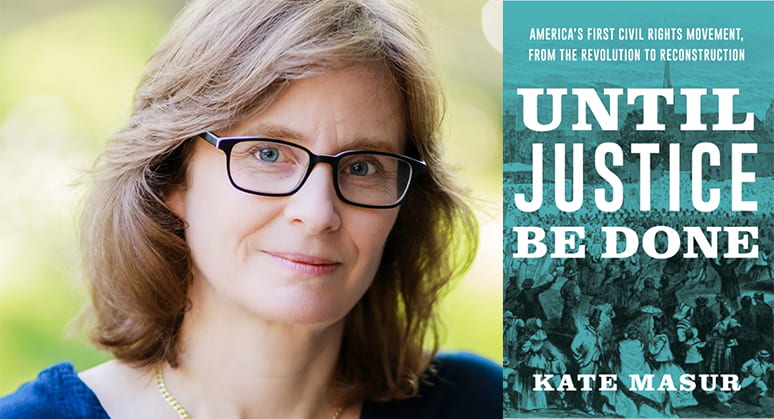History Professor Kate Masur’s new book, Until Justice Be Done, is a groundbreaking examination of the movement for equal rights in the decades preceding the Civil War.
Disheartening as it is to read such accounts, we should feel blessed that Kate Masur, a professor of history at Northwestern who focuses on Reconstruction, has now turned her attention to the long-sanitized early days of the republic with “Until Justice Be Done.” Prodigiously researching legislative and court records, pamphlets, petitions, and the press, she has shaped a remarkable and shattering book, a worthy successor to Ira Berlin’s 1974 “Slaves Without Masters.”
If this is a cleareyed book, it’s still a heartening one. Masur takes care to show not only the limitations of what was achieved at each step but also how even the smallest step could lead to another. The people she writes about seized openings and opportunities where they could find them, and then they used any hard-won advances to push for more. “Changing the law was not everything,” she writes, “but it was a start.”
Photo credit: Sean Su

